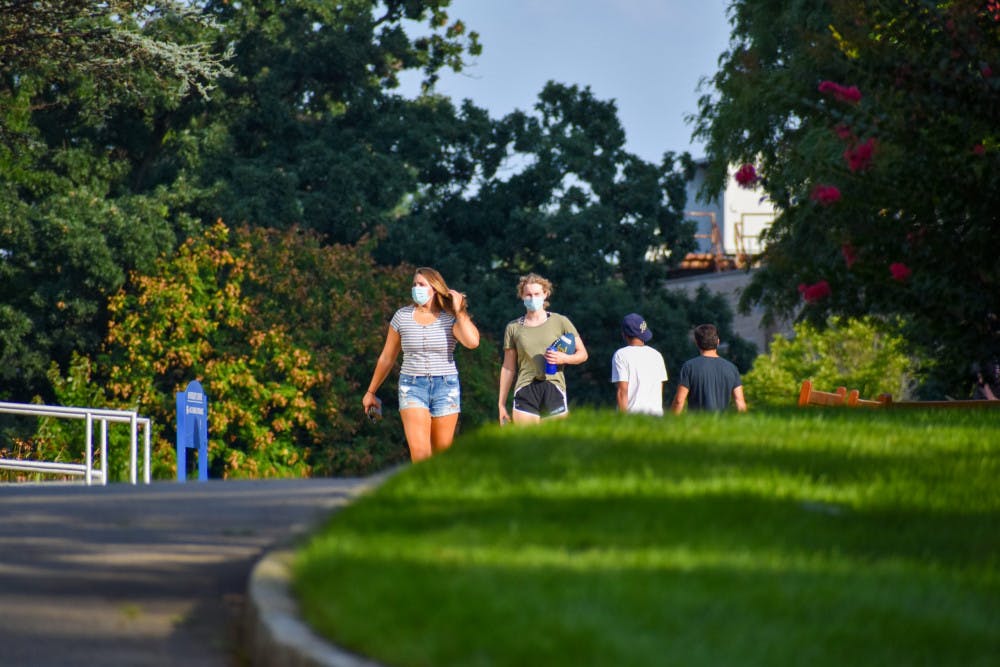Citing a recent 14% uptick in national coronavirus cases, Seton Hall announced on Thursday that it would begin random surveillance testing for resident students starting on Sept. 28.
The announcement, which was announced to resident students through an email from Vice President for Student Services, Dr. Shawna Cooper-Gibson, comes just days after a Setonian analysis of institutional testing data found that the University lagged behind other mid-size Catholic universities in testing and just one day after the University reported two new cases of the coronavirus on Sept. 23.

According to the email, the University will test 5% of all resident students each week starting next week. Students will be notified by email if they have been selected for testing and are asked to make an appointment at the University’s Health Services, where they will then provide a salvia sample.
“The HICT [Health Intervention and Communication Team] has been reviewing random test options over the past few weeks and believes this is the appropriate type of test for surveillance on our campus,” Cooper-Gibson said in the email. “Test results will be received within 48-72 hours.”
The University also announced that Health Services recently obtained the ability to administer rapid tests for the coronavirus, which can return results in as little as 20 minutes.
In addition to the recent national uptick in coronavirus cases, Cooper-Gibson said that Seton Hall was motivated to ramp up testing by coming cold weather, which public health officials are warning could be the cause of a potential “second wave” of the virus in the U.S., as well as a projected uptick in indoor activity and “the onset of flu season”
On Thursday, in a live video conference with New Jersey Gov. Phil Murphy, Director of the National Institute of Allergy and Infectious Diseases, Dr. Anthony Fauci, praised the state’s response to the coronavirus and said that the Garden State is in “good shape” for the upcoming challenges fall and winter may bring.
“Even as we face the challenge of the fall and winter, you’re positioned to do two things: to continue to gradually, carefully and prudently open your economy in a careful way, (and) at the same time, to avoid the challenging difficulty of what happens when a lot of things go indoors versus outdoors,” Fauci told Murphy.
As of Sept. 20, New Jersey reported a 3% test positivity for the virus statewide, according to the State’s coronavirus dashboard. In Northern New Jersey, the number is even lower, clocking in at 2%.
Still, the state’s rate of transmission remains above above the key benchmark of one, showing that the virus is continuing to expand, though Murphy said in his Wednesday coronavirus briefing that this was “expected.”
“[Commissioner of Health] Judy [Persichelli], you warned us that this would be the case, it would stick up around there for a while,” Murphy said. “It is. We'd like that to get to below one. We keep a close eye on that but it is about what we expected.”
Murphy has continued to expand New Jersey’s economic reopening, most recently announcing a resumption of indoor dining as well as reopening movie theaters, and gyms at limited capacities.
Nicholas Kerr can be reached at nicholas.kerr@student.shu.edu. Find him on Twitter @nickdotkerr.





